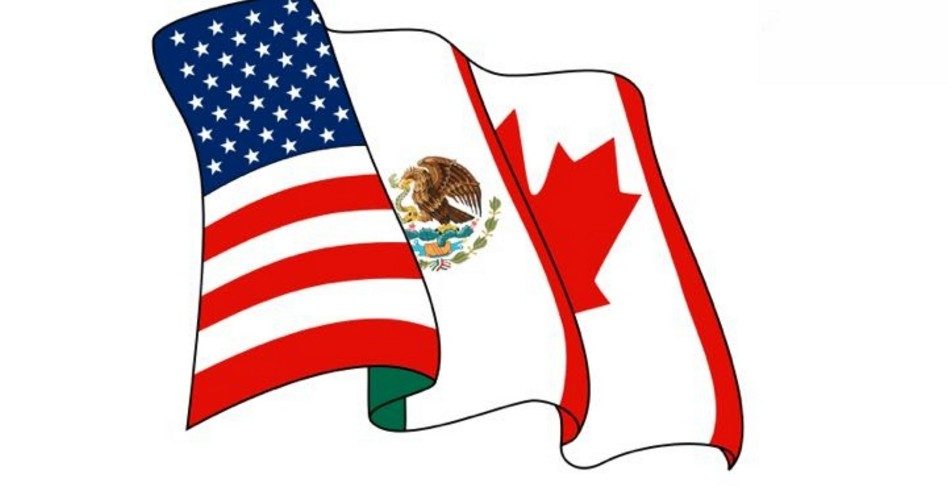
In recent talks in Mexico City on “modernizing” the North American Free Trade Agreement (NAFTA), which includes the United States, Canada, and Mexico, U.S. Trade Representative Robert Lightizer raised the possibility that the United States might ditch the multilateral trade deal, replacing it with two “bilateral” trade deals.
“As President Trump has said, we hope for a successful completion of these talks,” Lightizer explained, “and we would prefer a three-way, tripartite agreement. If that proves impossible, we are prepared to move on a bilateral basis, if agreement can be made.”
It should be noted that the United States signed bilateral trade deals on a regular basis until recent years, when globalists began pushing for sovereignty-diluting multilateral agreements.
The possibility of each nation member of NAFTA simply making a trade deal with the other two nations, rather than one multilateral agreement is opposed by powerful forces, including the governments of Canada and Mexico. The Canadian Embassy expressed concern that a U.S. withdrawal from NAFTA “would harm American workers and industry” (as though Canada is really concerned about the effect of such a withdrawal by the United States inside the United States).
The Canadian Embassy said in response to the possibility of bilateral trade agreements, “Our preference is to work constructively with our American and Mexican partners and negotiate a modernized NAFTA that provides win-win-win solutions. In the event the U.S. did withdraw from NAFTA, the agreement would still apply between Canada and Mexico.”
For that matter, the United States and Canada signed a trade deal in 1987 — a deal that would also remain in effect.
In addition to opposition from the other two members of NAFTA to the bilateral idea, the Trump administration would no doubt get stiff pushback from some big business interests inside the United States, such as the Chamber of Commerce, and the Wall Street Journal. Such a move would also encounter resistance in Congress, which is heavily influenced by such big business interests.
Among the more interesting issues is whether President Trump can pull out of NAFTA on his own, without approval from Congress. The view that presidents can do so was well enunciated by Senator Pat Toomey (R-Pa.), who lamented that, “Over the years, Congress has ceded way too much authority to the executive branch in a variety of [areas], but few more so than in the trade space. More of that should be in the hands of Congress. We are in the process of exploring how one might achieve that.”
Toomey’s comments to the Wall Street Journal were more specifically in regard to the recent Trump decision to impose a tariff to protect American steel and aluminum production. Ironically, Congress delegated that authority to the president years ago. While Congress has chosen to delegate its authority to the executive branch in many matters, it is without constitutional foundation for Congress to delegate any of its powers. For example, Congress delegated its control over the money supply of the United States to the Federal Reserve System in 1913.
The Washington Examiner observed, “Whether the administration can pull the U.S. out of NAFTA is a matter of lively debate among legal scholars. There is little precedent for an administration pulling the U.S. out of an existing trade treaty,” although the Examiner added that under the terms of NAFTA itself, “the administration can leave the treaty after six months’ notice.”
It is amazing what causes some members of Congress to suddenly remember that they are the branch that makes the laws, not the executive branch. Yet, little is said in opposition when presidents dispatch troops to foreign lands in violation of the Constitution’s provision that only Congress can declare war. Then, there is DACA, basically a law passed not by Congress, but rather by then-President Barack Obama, using his “pen and phone.”
One would think that if members of Congress are going to allow a president to, in effect, make a treaty, as Obama did with the Iran nuclear deal, another president — in this case, Trump can end a treaty.
Congress has been delegating its authority to presidents in the area of trade for decades. One of the glaring examples is “fast track trade authority,” an act of dubious constitutionality in which presidents can negotiate a trade deal, and Congress is not allowed to make amendments. But the Constitution is quite clear: Congress is given the power to regulate international trade. It is not allowed to delegate that authority to anyone else.
In this case, Toomey is half right. Congress should take back from the president its power to make trade deals. However, if giving up such power to the executive branch is wrong (and it is), then multilateral trade deals such as NAFTA are even worse. In the case of NAFTA, Congress is giving up its powers to foreigners. The example of the European Union is instructive. Begun as a simple “trade” deal, the EU now dictates all sorts of matters in its member nations, matters that one would think are for sovereign nations to decide.
Trump is right to pull back from multilateral trade deals, and Congress would be right to support him on it. We do not want NAFTA to evolve into an EU-like North American Union, infringing upon our own nation’s sovereignty and individual rights.
Image: Nicoguaro


